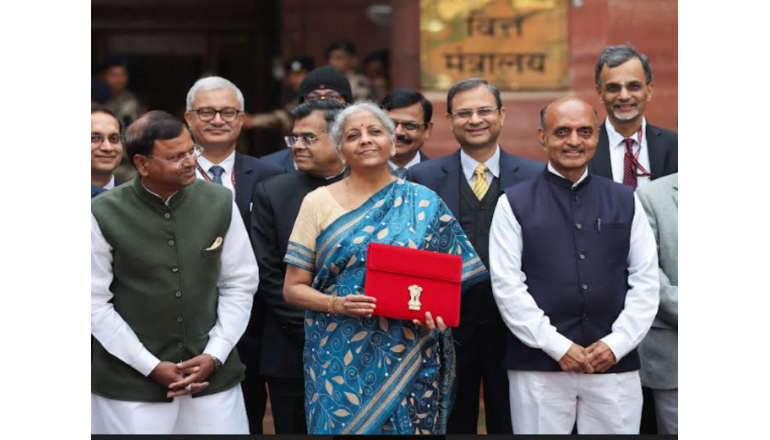As COP29 draws to a close, delegates await updates on negotiations regarding a new climate finance target during COP29 climate talks.
Debates over funding for developing countries’ climate adaptation centered on governments, multilateral banks, and the private sector. High-level talks focused on urbanization, transportation, and tourism.
The Baku negotiations aimed to establish a new climate finance goal, providing vulnerable nations with resources for more aggressive climate action.
The speakers reiterated that trillions of dollars are at risk, which developing nations require in order to adapt to quickly shifting circumstances and lessen the effects of climate change.
According to Cedric Schuster, Chair, Alliance of Small Island States (AOSIS), UNEP, the top-level priority is minimum allocation floors for small island developing States of $39 billion a year, and $220 billion a year for least developed countries, both in grant-equivalent terms. “Any [outcome] texts that do not include these aspects will not be acceptable for these groups.”
Sierra Leone’s Environment and Climate Change Minister, Jiwoh Abdulai, emphasized the need for appropriate funding for developing nations.
He underscored the need to address climate debt, urging against the use of the term “donor” as it implies altruism and sacrifices lives.
During COP29 negotiations, officials, UN agencies, climate experts, and civil society leaders emphasized the need to reduce emissions, adapt to climate change, mitigate crisis effects, and protect people from catastrophic weather events, particularly in cities.
Cities, home to half the world’s population and expected to see 2.4 billion more in the next 20 years, are significantly impacted by climate change and contribute significantly to global emissions, as per the UN.
UN-Habitat predicts a 0.5°C temperature increase for billions of city dwellers by 2040, according to its World
Cities report.
The current efforts to address the impacts of climate change on urban populations are inadequate in addressing the extent and severity of the issues they face, the UN acknowledged.
Infact, Anaclaudia Rossbach, Executive Director, UN-Habitat warned of the dangers of unplanned urban growth, including food security, biodiversity, and environmental degradation, and calls for increased funding and collaboration to meet sustainable development goals by 2030.
Ms. Rossbach stressed the need for a collective approach to address social, urban, and climate needs, focusing on addressing land scarcity, social and housing needs, and ensuring no one is left behind.
“There is only one road to pursue, one track, one we walk collectively where social, urban, and climate needs are addressed harmoniously over solid economic ground. Yes, we do need more finance flowing to cities. We need to plan and prioritize. Land is scarce and needs to fulfil its social and ecological functions. Social and housing needs are vast,” she said.
Interestingly, the definition of a “developing country” has also been debated, with some negotiators arguing that nations like India, China and some Gulf states no longer fit this category.
The UN Environment Programme’s report showed global emissions rose 1.3% in 2023, despite supposed decreases. The report suggested that updated national contributions could lead to a 42% reduction by 2030 and a 57% reduction by 2035 to limit warming to 1.5°C.
Inger Andersen, Executive Director, UNEP, highlighted that 52% of all greenhouse gas emissions originate from 25 megacities, including Shanghai, Beijing, Tokyo, Moscow, and New York City.
“This means the actions you take in setting standards for energy efficiency, determining energy sources, managing waste and methane emissions, improving public transport, encouraging electric mobility, and promoting pedestrian-friendly cities can make a massive impact,” she told global mayors at COP29.
The tourism industry, which grew from the COVID-19 pandemic, was also discussed at COP for the first time, as foreign arrivals returned to pre-pandemic levels, employing one in ten people and contributing $3.3 trillion to global GDP.
“We need to understand that the tourism sector is impacted by climate change. And so, it is both a victim of and a contributor to climate change. That is why having this first tourism focus at a COP is very important,” Ms Anderson said.
Selwyn Hart, Special Adviser to the Secretary-General Climate Action, UN, spoke about the urgency of the transition to renewable energy at COP29. He questioned if rapid transition will prevent negative outcomes and if it will reduce inequality within and between nations.
“The shift to renewable energy is already undergoing a revolution. There is no way to stop it. The question still stands, though, as to whether this transition’s rapidity will avert its worst outcomes. Secondly, will it be equitable enough to lessen inequality both within and between nations?”
he asked.
Cecilia Kinuthia-Njenga, Director, Division of Intergovernmental Support and Collective Progress, UNFCCC, noted, “In multilateralism, the results are sometimes different from what any one country imagines. This underscores the importance of flexibility, cooperation, and the willingness to adapt to changing circumstances and international relations.”












